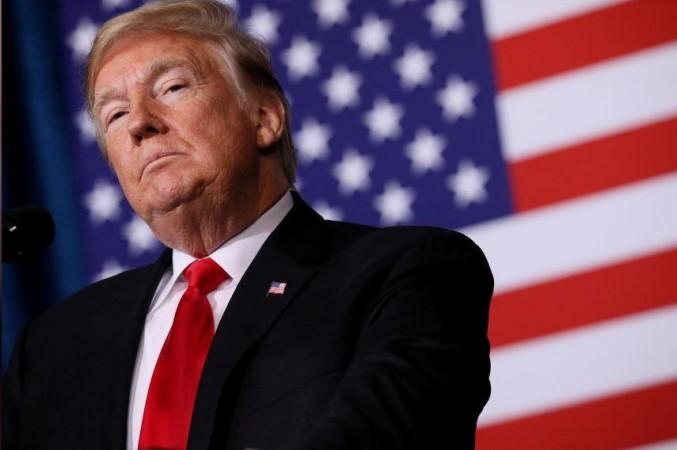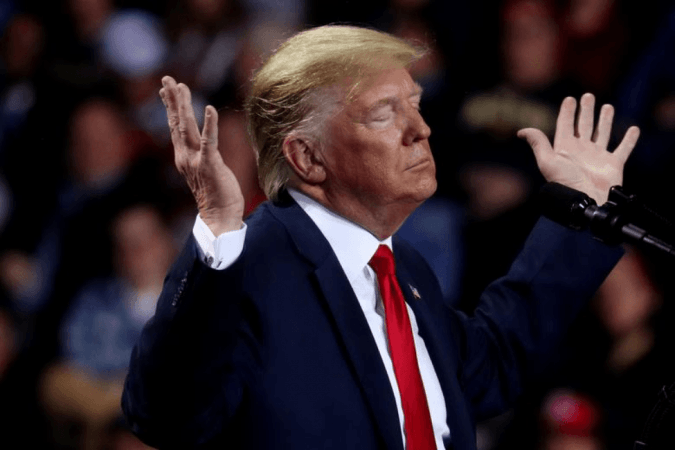
A former federal prosecutor who worked on the 1972 Watergate scandal that led to the resignation of former US president Richard Nixon has stressed that Donald, his daughter and senior advisor Ivanka Trump could be imprisoned for "tax fraud" after leaving the White House. That is in case he loses the November's presidential election, adding that the only thing that's saving him at this point is his incumbency.
Asked during an appearance on CNN whether the US president could face charges for years of alleged tax evasion following the publication of his tax records this week, Nick Akerman said there was "no question about it".
"And his daughter could go to jail, too," said he added of Ivanka, a White House adviser who was also named in a bombshell New York Times report on Trump's financial filings.
"The only thing that's saving him at this point is the Department of Justice's guideline that says you can't indict a sitting president," Akerman said. "Once he's no longer a sitting president, he is subject to being indicted."
Trump's tax controversy
The report revealed Trump had paid no federal income tax in 10 of the past 15 years despite having made - and lost - millions across his businesses.
The president paid only $750 in federal taxes in 2016, the year he was elected, and the same sum again in 2017, despite boasting of being a billionaire.
"Tax evasion is a five-year felony," Akerman told CNN.
"It looks like Trump has done a whole series of activities that could qualify as tax fraud, not tax avoidance," the prosecutor added.
"Tax evasion is a five-year felony," said Akerman, who was an assistant special Watergate prosecutor investigated Nixon's taxes. "It's a pretty serious crime, and the more money that's stolen, the longer you go to jail for," he said further.

What the DoJ policy states?
The US Justice Department has a decades-old policy that a sitting president cannot be indicted, indicating that criminal charges against Trump would be unlikely, according to legal experts.
In 1973, in the midst of the Watergate scandal engulfing President Richard Nixon, the Justice Department's Office of Legal Counsel adopted in an internal memo the position that a sitting president cannot be indicted. Nixon resigned in 1974, with the House of Representatives moving toward impeaching him.
The department reaffirmed the policy in a 2000 memo, saying court decisions in the intervening years had not changed its conclusion that a sitting president is "constitutionally immune" from indictment and criminal prosecution. It concluded that criminal charges against a president would "violate the constitutional separation of powers" delineating the authority of the executive, legislative and judicial branches of the US government.
"The indictment or criminal prosecution of a sitting President would unconstitutionally undermine the capacity of the executive branch to perform its constitutionally assigned functions," the memo stated.
But in order to prosecute for the tax frauds, Trump first needs to be removed from his office. Many federal crimes have a five-year statute of limitations, meaning prosecutors have five years from the date the conduct at issue occurred to bring an indictment. That means criminal charges against a re-elected Trump could be time-barred.
Tax evasion more than tax avoidance

Trump has denied any wrongdoing. However, he has also refused to publicly disclose his tax returns, as has been customary for presidential candidates for nearly half a century.
Akerman said the Times report details "a whole series of activities that could qualify as tax fraud, not tax avoidance."
Avoidance, he said, is merely taking advantage of the tax code in legal ways to maximize deductions. Fraud, on the other hand, involves lying about income and deductions.
He pointed specifically to consultant fees paid by Donald Trump to Ivanka Trump. Since Ivanka Trump was already an employee of the Trump Organization, Akerman said, there was "no legitimate reason" for those payments.
He speculated the two could have been shifting the money around to avoid paying taxes on it.








